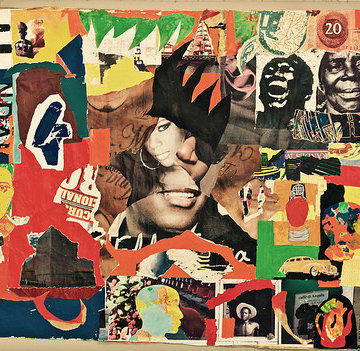- About
- Topics
- Story
- In-Depth
- Picks
- Opinion
- News
- Donate
- Signup for our newsletterOur Editors' Best Picks.Send
Read, Debate: Engage.
| located: | Portugal |
|---|---|
| editor: | Maria João Morais |
Walking through the central districts of Lisbon; Rossio, Martim Moniz or Avenida Almirante Reis, it is easy to feel the multiculturalism due to Portugal's colonial past.
People with roots from Mozambique, Angola, Cape Verde or Guinea Bissau jostle in the hustle and bustle of the Portuguese capital. The diverse ethnic makeup of lisboetas is evident whilst strolling through the streets or travelling on public transport. However, in companies, universities, and the media, it is rare to find representation from Portugal's ethnic minorities.
Problems of social integration have been prevalent in last few decades as well as a lack of opportunities for Afro-descendants. This "subtle" racism, already denounced by the United Nations, is largely due to the lack of policy and initiatives aimed at these groups.
According to a recent study carried out by various associations, racial inequalities in Portugal extend from education to living conditions. Pupils from the so called PALOPs (Portuguese speaking countries) are three times as likely to repeat part of their primary school education. Also, the rate of incarceration amongst citizens of PALOP origin is 15 times greater than Portuguese people. Furthermore, with low skilled employemt, Afro-descendants are more likely to live in the poorer outskirts of urban centres, often segregated from the rest of society and frequently visited by the police. Greatly underrepresented in positions of power in post-colonial Portugal, only a small minority of Afro-descendants reach elevated positions in companies or state institutions.
To make matters worse, despite being born in Portugal and many having never even visited their parents' countries of origin, those born between 1981 and 2006 (when the law was amended) do not even have access to Portuguese nationality, living in a constant legal limbo, harming their status and future.
Such a tragic tale exemplifies the implicit discrimination that cripples Portuguese society today. After a rushed and hasty decolonisation process that finished 40 years ago, following the revolution that brought democracy to Portugal after the repressive Salazar dictatorship, very little has been done to repair Portugal´s questionable colonial past and restore the rights of Afro-descendent citizens, promoting equality amongst the Portuguese whatever their origin may be.
Photo: The Maculusso Mural (2014) - Antonio Ole (1951), Pedro Ribeiro Simões
